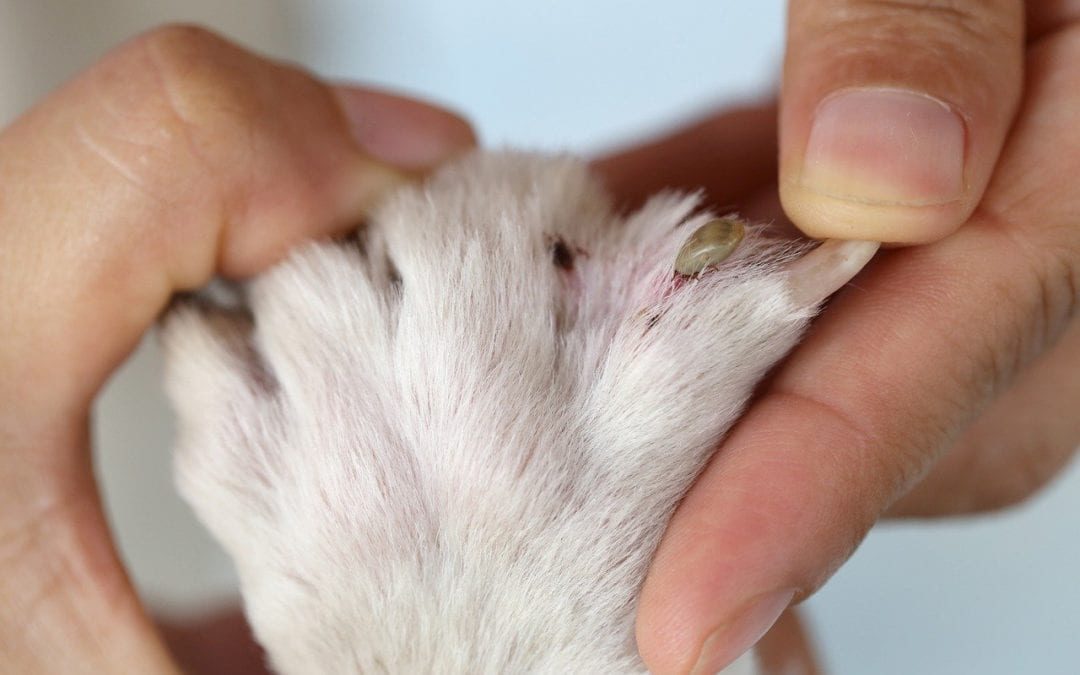7 Steps to Remove Ticks Correctly From Your Pet
It’s June and that means it’s time for some outdoor summer adventures! Make sure to always check your pet for ticks after you get home. If you find a tick on your pet, do you run to grab a lighter or nail polish, to encourage the blood-sucker to retreat? Please don’t. These methods do not work, and can harm your pet. Instead, follow our seven easy steps to remove ticks correctly from your furry pal.
Step 1: Put on gloves
Ticks pose a threat not only to your pet’s health, but also your own, as they carry many potentially severe diseases. Play it safe, and wear protective gear before handling a tick.
Step 2: Distract your pet with tasty treats
You don’t want your pet to run off in the middle of removing the tick, so enlist a helper, or distract your furry pal with a long-lasting treat.
Step 3: Position your tweezers close to your pet’s skin
Fine-tipped tweezers work best at getting as close to your pet’s skin as possible, without grabbing hold. Grasp the tick’s head where it enters the skin, rather than the bloated body.
Step 4: Pull the tick out
Use steady, even pressure to pull the tick straight out. Avoid twisting or jerking the tick, so you don’t leave the mouth parts behind, and don’t squeeze or crush the tick, since that can encourage toxin release.
Step 5: Don’t flush the tick
Ticks can live up to three weeks in water, so flushing it down the toilet won’t drown it. Instead, kill the tick in a container filled with rubbing alcohol.
Step 6: Disinfect the bite site
Clean the bite site with triple-antibiotic wipes or spray, and watch for signs of redness, swelling, or infection. Most tick bites don’t require additional treatment, but we recommend testing your pet for tick-borne diseases a few months after a tick bite.
Step 7: Stock up on tick prevention
Using a high quality tick preventive year-round is the best way to keep your pet tick-free, and with all the prevention options available, there’s no reason to deal with ticks.
If you discover a tick attached to your pet, and are nervous about removing it, don’t panic—contact us, and we can remove that blood-sucker for you.

